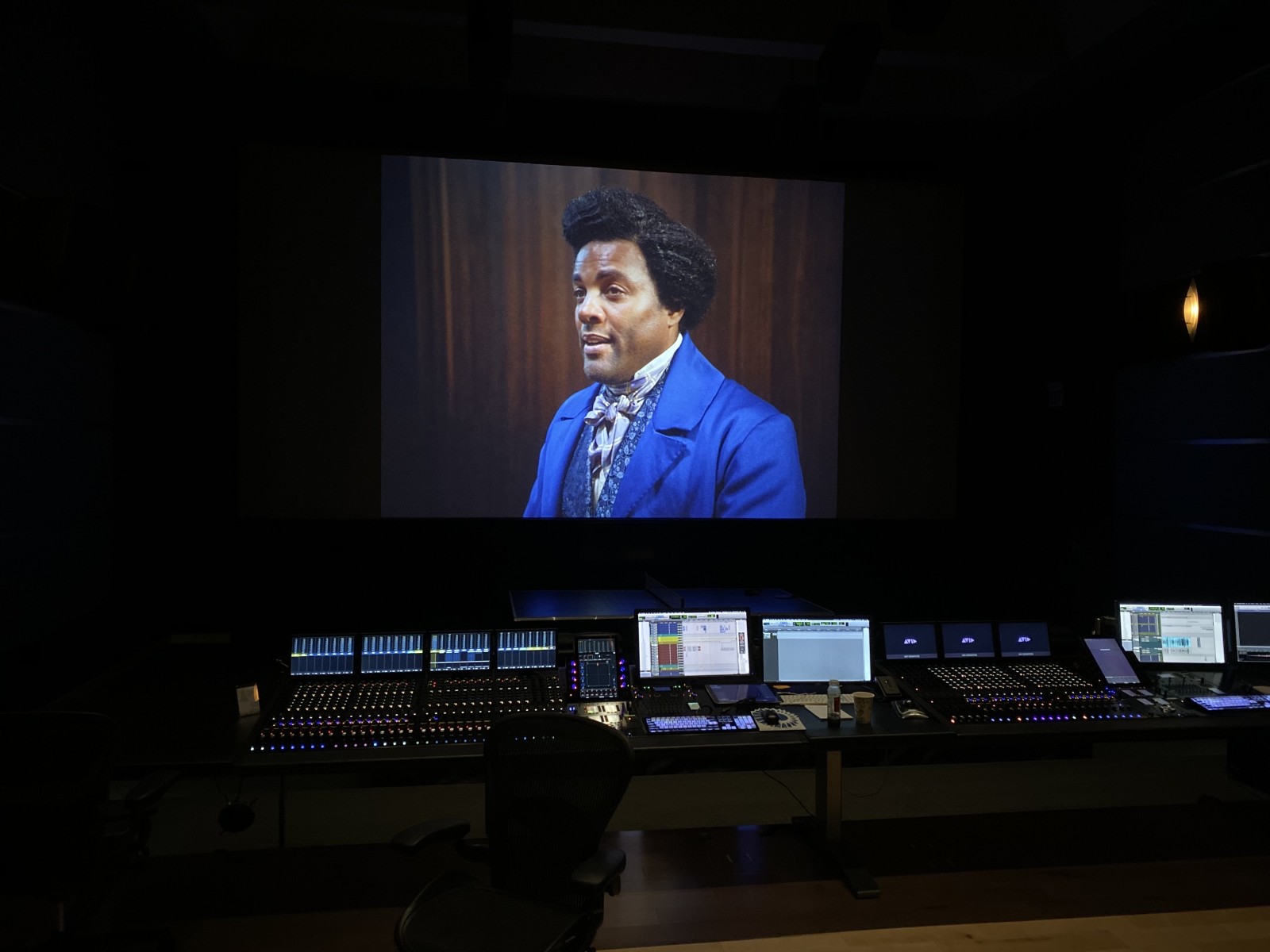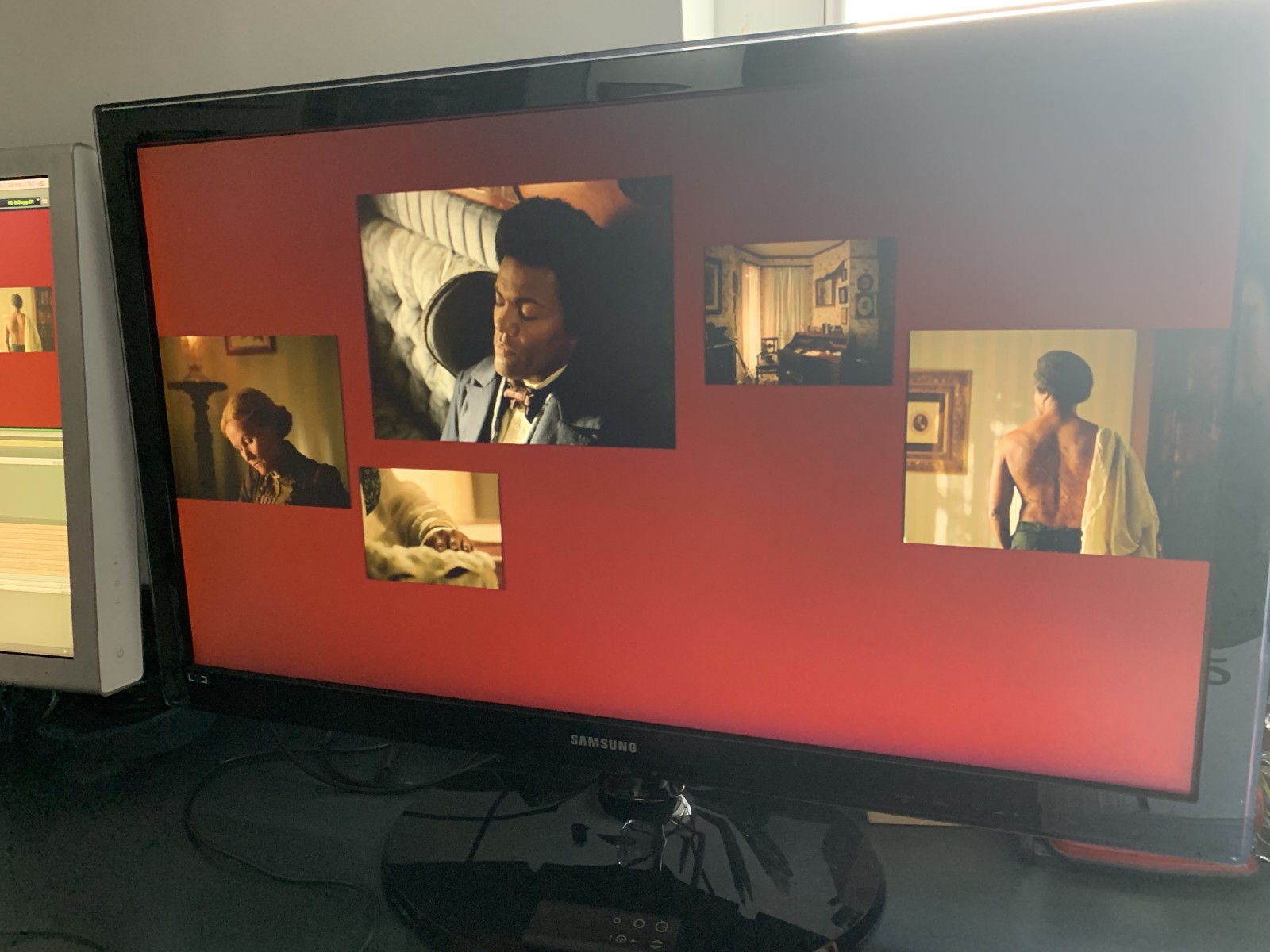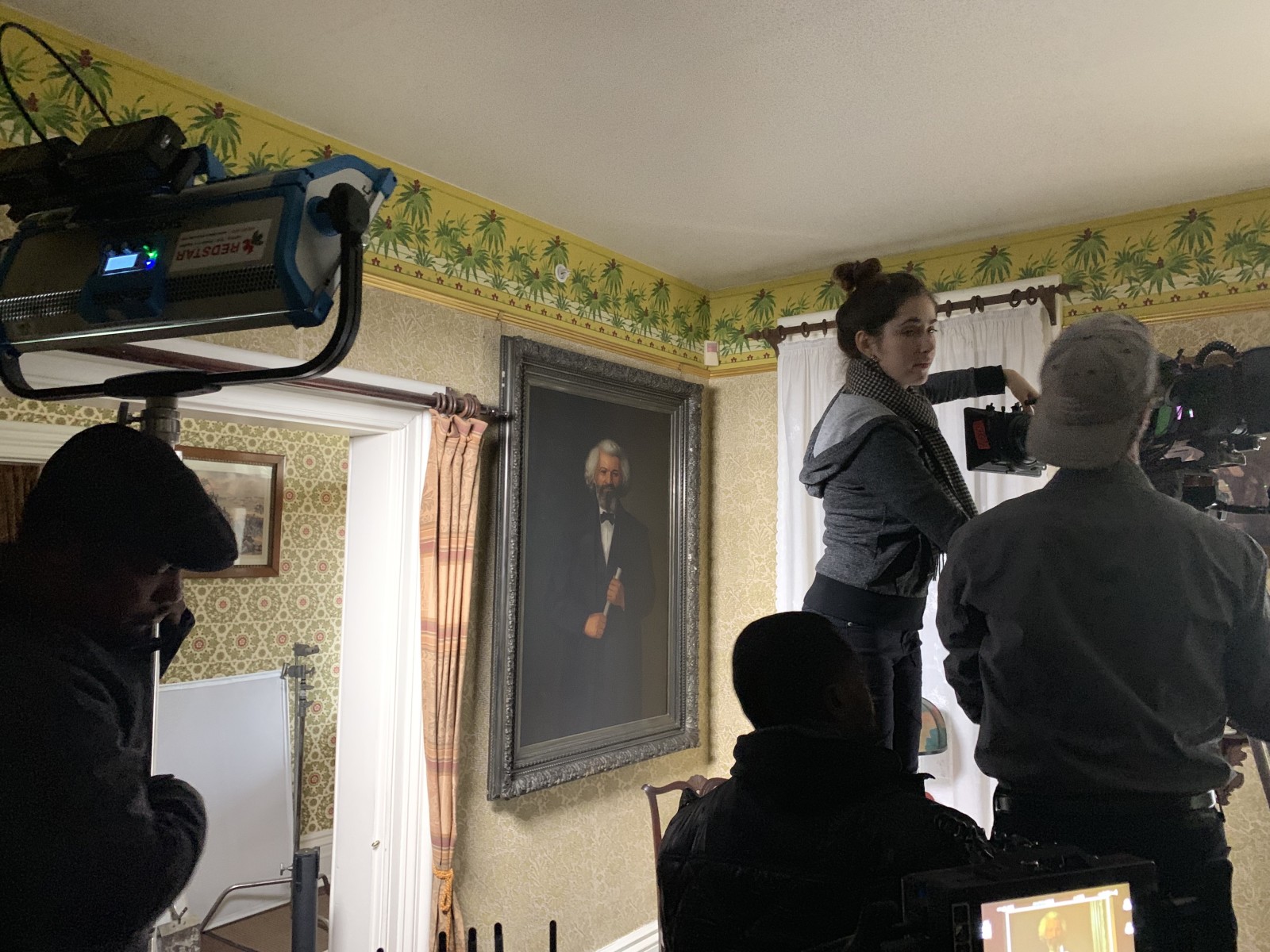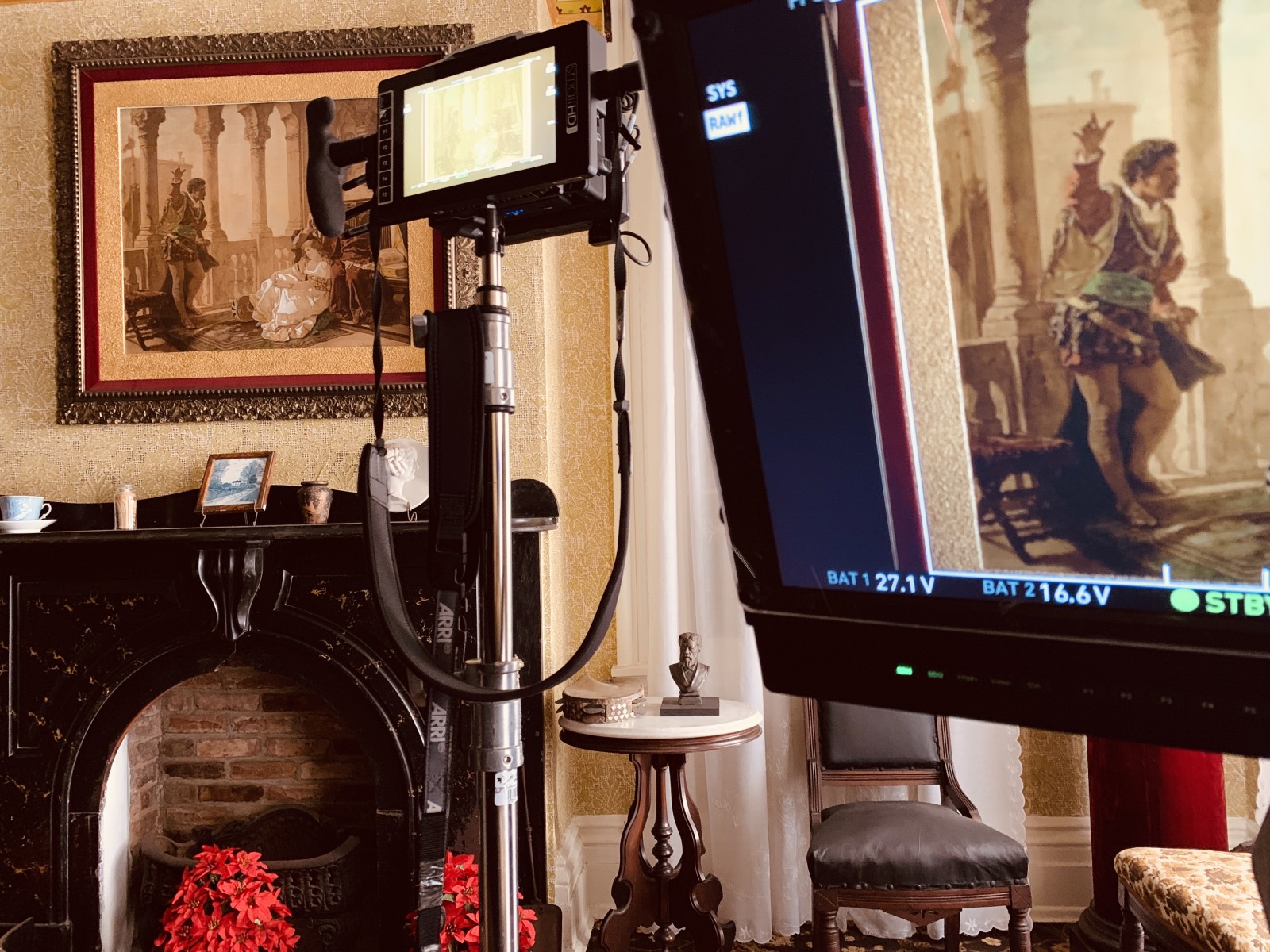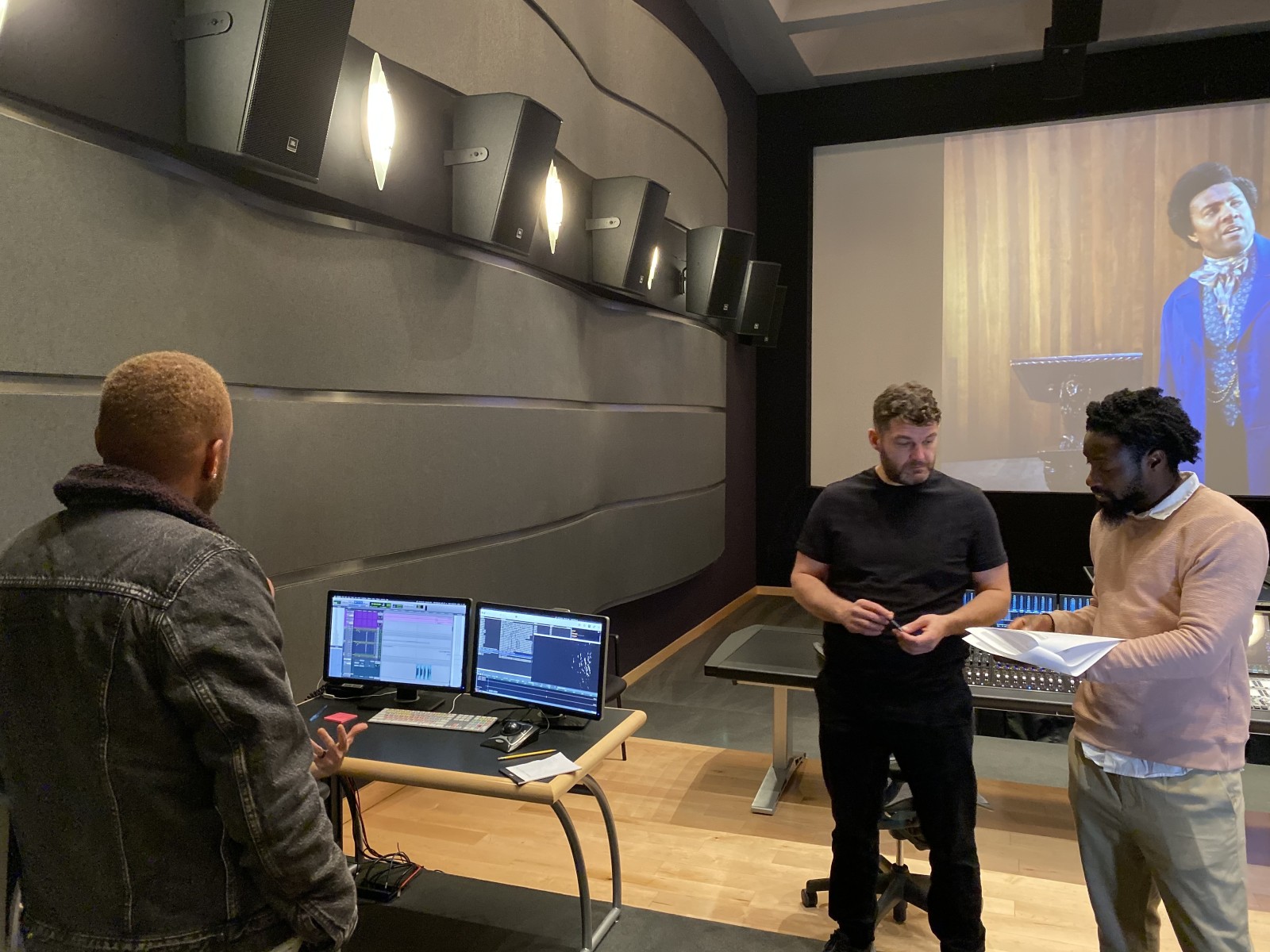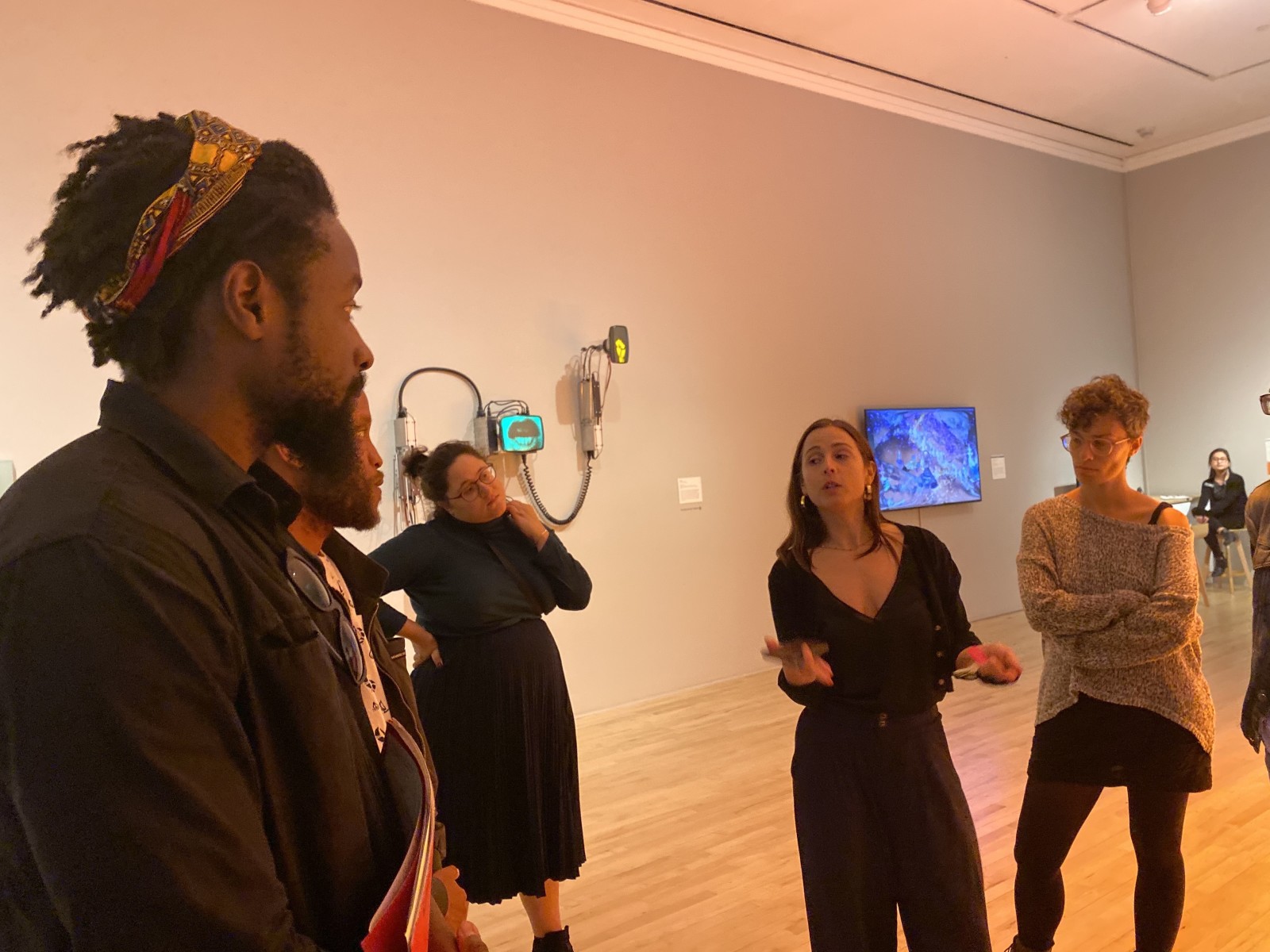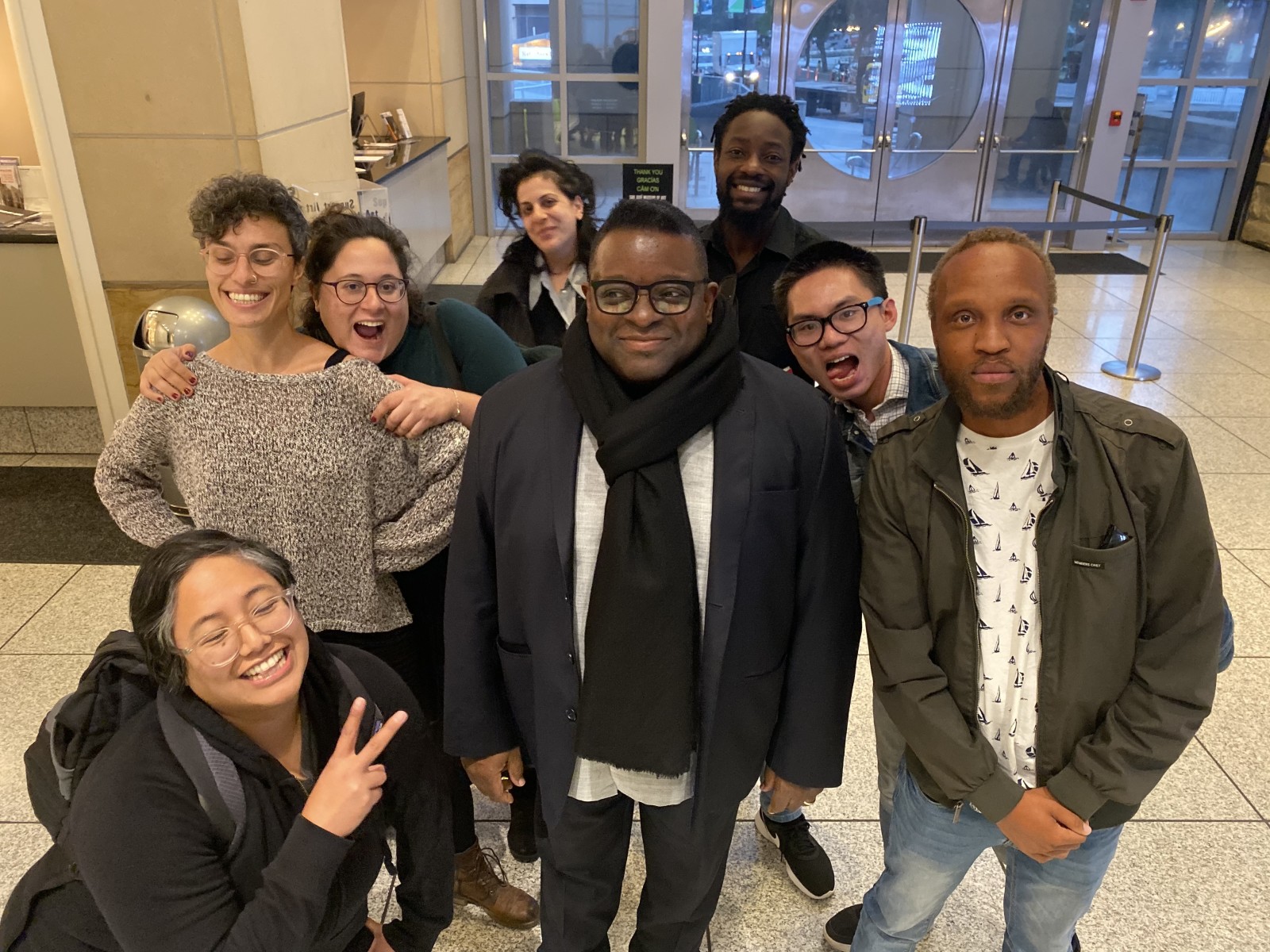Isaac Julien Lab at UC Santa Cruz
The Isaac Julien Lab at University of California Santa Cruz is designed to mirror the Isaac Julien Studio in London. Isaac Julien Lab is a platform from which moving images, photographic works, exhibitions and publications are produced. The areas of artistic practice explored within the lab are at the interstitial sites between moving and still images as differentiated from industrial film. One of the main reasons to differentiate between these two practices is to explore spaces of theoretical reflection, opening new modes of artistic and curatorial production.
The Lab at UC Santa Cruz aims to create innovative visual and sonic languages for production, exhibition and installation whilst examining the various aspects that concern contemporary artists and curators working in the field of media art and moving image today, in relationship to current modes of research, development, exhibition, production and scenography of moving image artworks.
While our digital age has dictated built-in obsolescence as an integral character of electronic media, by contrast, one of the central themes in Isaac Julien Studio, as will be explored in the Lab, considers how the archive, which involves both digital and analogue technologies, can be reactivated as an intrinsic aesthetic creative method.
Ideal candidates should demonstrate prior experience in moving image and be familiar with critical theory whilst showing interest in conceptualising, curating, and exhibiting artworks. Candidates with experience or interest in curating moving image are also encouraged to apply.
The Lab will run a study abroad programme at the Isaac Julien Studio in London, applying ideas and themes learned during the previous two quarters at UC Santa Cruz.
This program has been developed in line with the Arts Division at UC Santa Cruz, which aims to focus on the artist as a cultural entrepreneur, who necessarily engages with the art world to further practices, aesthetic languages, and develop critical knowledge of the processes of cultural art industries today.
Isaac Julien and Mark Nash
Isaac Julien, Distinguished Professor of the Arts, leads the IJ Lab together with Arts Professor Mark Nash. Julien and Nash have a long thirty year history of collaboration, from Julien’s seminal film Looking for Langston (1989), to the establishment of the production company Normal Films, producing films such as The Attendant (1993), Frantz Fanon Black Skin White Mask (1995), and more recent multi-screen installations such as Ten Thousand Waves (2010), Playtime (2014), Lessons of the Hour: Frederick Douglass (2019) and Lina Bo Bardi – A Marvellous Entanglement (2019).
Mark Nash is an established critic and curator. Previously a Professor and Director of Curating Contemporary Art at the Royal College of Art in London, he edited influential British film theory journal Screen before embarking on film and art installation projects with Isaac Julien, and co-curating important international exhibitions such as Documenta 11 with Okwui Enwesor in 2002. Nash is currently co-curating the forthcoming exhibition Grief and Grievance for the New Museum (New York), due to open in fall 2020.
Both Nash and Julien’s practice engages the three pillars of the UCSC Academic Priority Areas: Digital Interventions, Justice in a Changing World and Earth Futures. The IJ Lab invites students to propose a research project involving one or more of these areas.
Isaac Julien Lab DANM – Programme
Students explore Julien and other practitioners’ work, learning about the practical, critical and theoretical issues engaged by international artists today.
Students work in the Lab in a number of ways to develop their own art and/or critical practice project, attending courses/seminars both within the Isaac Julien Lab DANM as well as other Arts Division courses.
The Lab invites students to propose a research project involving one or more of the UCSC Academic Priority Areas: Digital Interventions, Justice in a ChangingWorld and Earth Futures.
MFA students are introduced to key theoretical and philosophical concepts within moving image, video art, and other related creative practices. In the first year they are introduced to a range of practical skills, gaining familiarity with moving image technologies ranging from digital and analogue image production to the specific archival practices these media require.
Activities and topics include:
- Introduction to methodologies of installation and exploration of moving image presentation strategies.
- Scenography and spatial design topographies.
- Planning and conceptualising exhibitions of moving image work in collaboration with Isaac Julien Studio.
- Theories of moving image and the history of video art and performance practices.
- Moving image and the documentary turn.
- Digital interventions – working with and exploring Isaac Julien’s curatorial, film and installation practice.
- Practical criticism – engaging with philosophical and cultural studies texts.
- Curating the moving image in collaboration with collections and galleries, such as the Nion McEvoy Foundation; Kramlich Collection; the Joyner/Giuffrida Collection of Abstract Art.
- Technical seminars: including in lighting camera/DOP; installation architecture and screens; sound profiles; multiple screen editing; technical aspects of installation.
The second year of the MFA programme is dedicated to research and realisation of the thesis project. Most likely the thesis project will take the form of a moving image artwork installation or curated exhibition created in tandem with Mark Nash and Isaac Julien Studio.
In the second year, the Lab will run a study abroad programme at the Isaac Julien Studio in London. Topics covered will deepen the knowledge already acquired in the previous two quarters at UC Santa Cruz.
The study abroad programme include:
- Introduction to the Isaac Julien Studio and Archive archival practice and theory.
- Exhibition and Production for both single and multiple screen installation.
- Editing and Post-Production methodologies.
- Photographic production and archiving digital and analogue technologies.
- Research and publication strategies.
- Art exhibition making and administration for moving image and curatorial practices.
- Archival Collections.
Particular emphasis on the course will be placed in fostering students’ ability to integrate research within their fine art practice, as well as develop appropriate modes of self-presentation.
At the end of the program students can expect to have acquired practical and theoretical skills to better prepare them for a career as practicing artists, researchers or curators in cultural art industries.
For further information, including enquiries about course content and the application process, please contact UC Santa Cruz and see the following pages of their website –
Isaac Julien Lab, Digital Arts New Media
Applications for the 2020-21 programme are now open (deadline: 8 February 2020)
To hear Isaac Julien speaking about the Isaac Julien Studio and Archive, follow this link to the Tate Gallery YouTube channel

